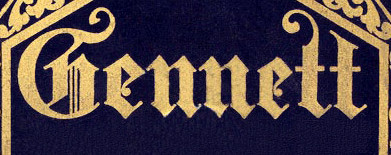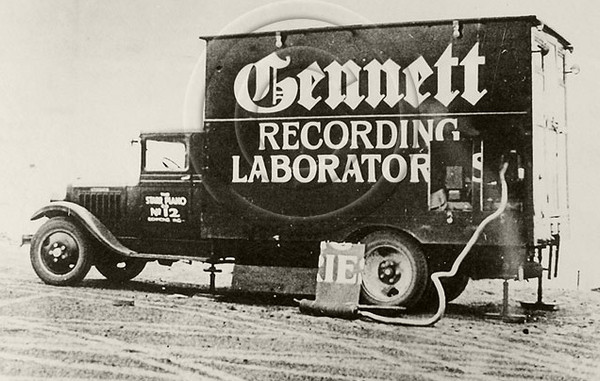Gennett
Настоящее имя: Gennett
Please use this page to enter releases on the Gennett label. Please use Gennett Records as record company for releases that state this in smaller font near label bottoms.
Gennett was an American record label, founded in Richmond, Indiana, USA by the Starr Piano Company Starr (5) and was named after the latter's three most important managers, Harry, Fred, and Clarence Gennett. Its first records (which were vertically cut) were released in October 1917. These included three items by the pianist Earl Fuller. Laterally cut discs were released from mid-1919, among them a recording by the New Orleans Jazz Band. The company made its first forays into the race-record market with material by white bands, and issued a long series of discs recorded in 1921 by the Original Memphis Five (under the pseudonym Ladd's Black Aces) and a more important sequence made in 1922–3 by the New Orleans Rhythm Kings (as the Friars Society Orchestra).
Sessions by a few vaudeville blues singers were organized, but extensive recording of race material did not begin until 1923, when King Oliver and Jelly Roll Morton both recorded for the label. These tracks formed the start of a series of recordings now held to be classics. Gennett never had a designated race series: instead, from 1924, it printed the relevant labels with the legend "race record," and was the only company to adopt this policy. The discs were generally issued in batches as part of the general sequence, especially after December 1926, when the catalogue reached 6000; at this point the company started to produce electrically made recordings, the Electrobeams.
Gennett is best remembered for the early jazz talent recorded on the label, including sessions by Jelly Roll Morton, Bix Beiderbecke, King Oliver's band with young Louis Armstrong, Hoagy Carmichael and many others. Gennett also recorded early blues artists such as Blind Lemon Jefferson, Charley Patton, and Big Bill Broonzy, and early country music performers such as Vernon Dalhart, Bradley Kincaid, Ernest Stoneman and Gene Autry.
The Gennett Company was hit severely by the Great Depression in 1930, and massively cut back on record recording and production until it was halted all together in 1934. In 1935 the Starr Piano Company sold some Gennett masters, and the Gennett trademark to Decca Records.

